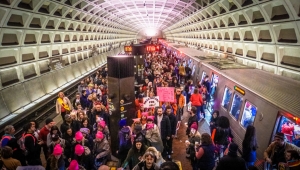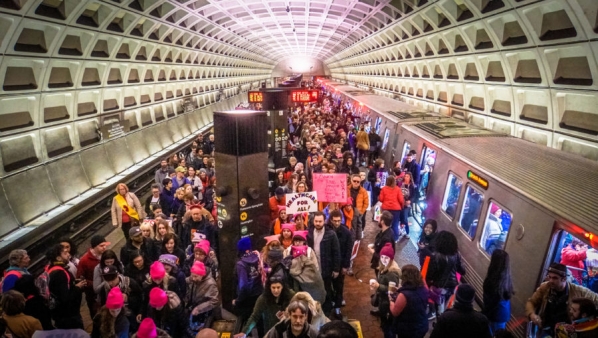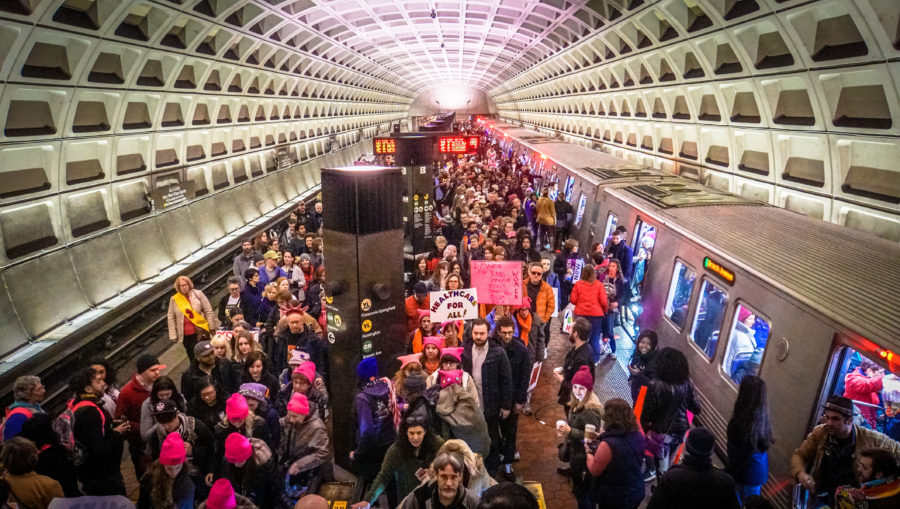
Ted Eytan via Flickr CC 2.0
On Jan 21, 2017, hundreds of thousands of demonstrators traveled to D.C. to protest the Inauguration of Donald Trump and millions more protested throughout the United States and around the world. These marches were in protest of the systemic inequities and injustices women face, and Trump's election was seen as a big step backwards on these issues. Now known as the Women's March, people marched for women's equality, reproductive rights, environmental justice, racial justice, and a multitude of other progressive positions.
Two of the women who attended are professors here at App State. Traveling down to the march with fellow faculty members from the Department of English, Dr. Sarah-Beth Hopton and Dr. Jessie Blackburn gained national attention when they were featured in an article for the Chronicle of Higher Education. I had the opportunity to interview them about the march, and asked them to look back and reflect on the moment and our current circumstance four years later.
Both professors identify as feminists and were concerned about the direction the country was headed in with Trump at the helm. It wasn't necessarily about Trump winning the 2016 election, but that he was able to get away with making fun of a disabled reporter, or saying that you can get away with sexual assault, but that he was elected president despite those things, and millions of Americans defended his words as 'locker room talk.' "I had to do something," Dr. Blackburn told us.
"Growing up in a world that socially conditions girls and women to accept the patriarchy and not raise our voices or resist or dissent, it mattered to me that my teenage sons see me mobilize, leave the house at 2:00 am, and catch a bus down to Washington in order to peacefully protest the abuse of one's professional power in order to sexually exploit or coerce another, which was a well known (and elected) element of Trump's masculine performativity."
Dr. Hopton echoed Dr. Blackburn's feelings. "I felt literally compelled to participate in some form of activism. It felt good to surround myself with like-minded people and to see intersectional feminist activists at work in our nation's capitol."
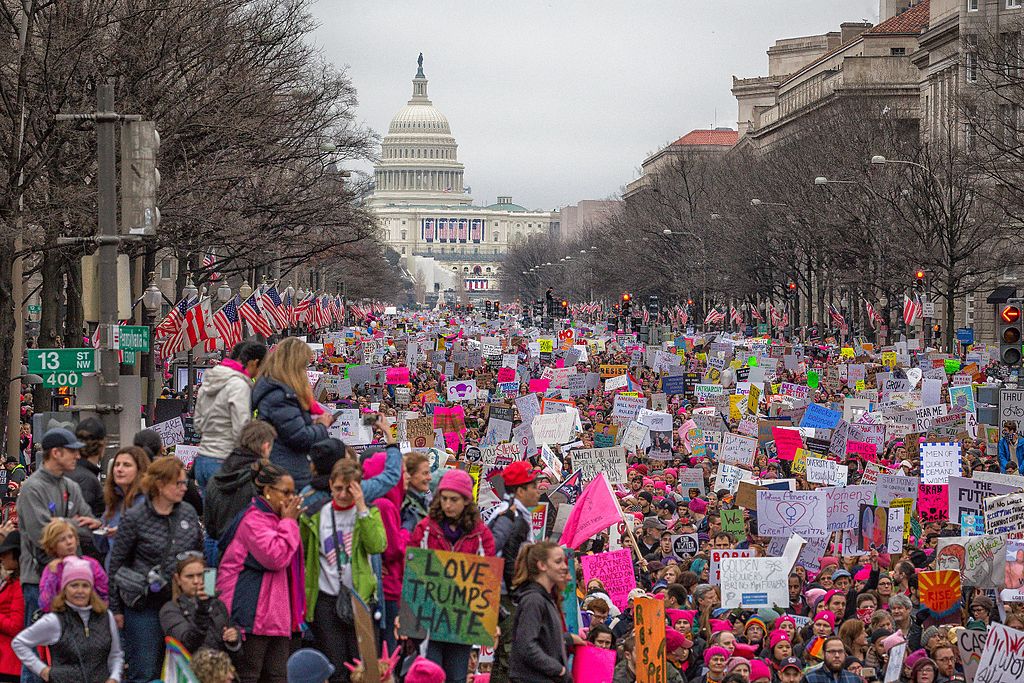
Mobilus In Mobili via Flickr CC 2.0
When asked if they would march again, both said they'd jump at the opportunity. Dr. Hopton said that she would absolutely march again. "There was an electricity in the crowd that was indescribable. I want to be a person who is always on the right side of history, a person who doesn't just research or theorize about social justice and environmental advocacy, but participates, advocates, acts."
Dr. Blackburn said: "Until there is climate justice, gender justice, economic justice, racial justice, labor justice, and healthcare justice, I will march. Until people everywhere are able to organize and unionize for their rights, I will march."
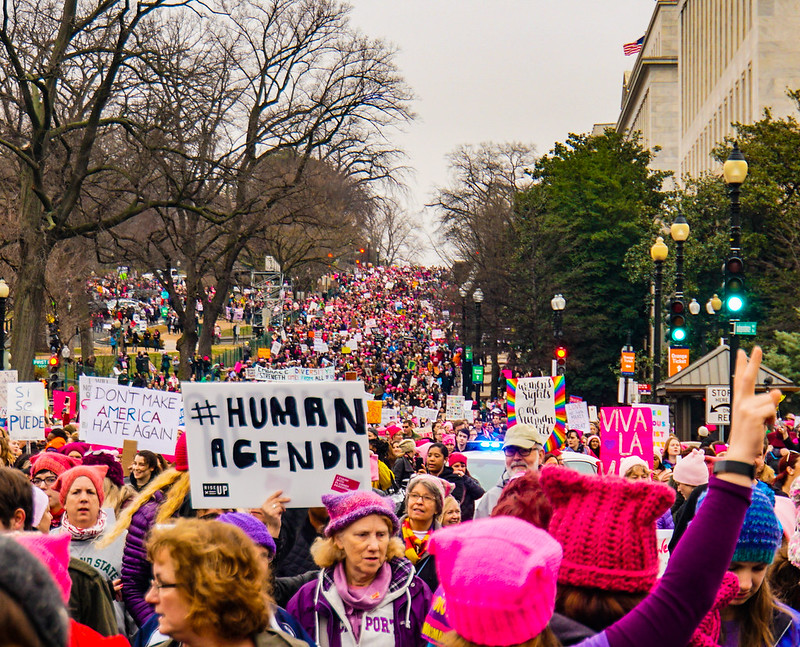
Ted Eytan via Flickr CC 2.0
When asked if they thought the United States was headed in a better direction with a new president, both agreed, but they also thought there is a lot of work to be done.
Dr. Blackburn told us that she "think[s] it will take a long time to recover from what has happened as a result of the permission Americans were given to abandon empathy and civility and the American virtue of country over self. The individual ego ruled over the collective good for the last four years, and I do not believe America will just snap out of it."
Dr. Hopton told us that "Biden/Harris won't be a perfect administration; that has never and will never exist. But, I expect from them at a minimum a general decency toward others that did not exist in the Trump era."
Written by: Brendan Doering
